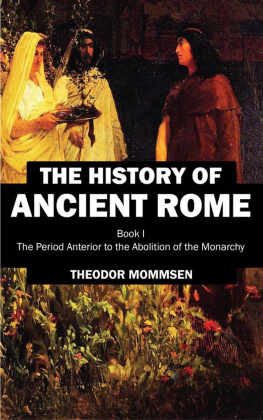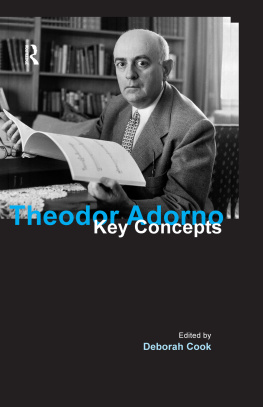SKETCHES FROM EASTERN HISTORY
MORRISON AND GIBB, PRINTERS, EDINBURGH.
SKETCHES
FROM
EASTERN HISTORY
BY
THEODOR NLDEKE
PROFESSOR OF ORIENTAL LANGUAGES IN THE
UNIVERSITY OF STRASSBURG
Translated by
JOHN SUTHERLAND BLACK, M.A.
AND REVISED BY THE AUTHOR
LONDON AND EDINBURGH
ADAM AND CHARLES BLACK
1892
PREFACE .
Of the following studies, three have already appeared in German periodicals, and one (that on the Koran) forms part of the article Mohammedanism in the 9th edition of the Encyclopdia Britannica . But all four have been considerably revised. The remaining essays were written in the course of last year. The fourth, fifth, and sixth, and to some extent the second and third also, may be regarded as supplementing Aug. Mllers excellent History of Islam . I have made careful use of all the sources that were accessible to me, but have cited them only rarely. I hope I have been fairly successful in obliterating the traces of laborious study, while, at the same time, I trust that the book may be found to be of some value, even to the specialist.
The account of Mansrs reign is preceded by a brief rsum of the antecedent history, and of the beginnings of the Abbsids dynasty; it was impossible otherwise to exhibit the personality of Mansr in a proper light. Less organically connected with their context are the paragraphs at the close of the essay upon King Theodore. But the interest which Abyssinia now has, even for the ordinary newspaper reader, justifies, I think, the few words on its history after the death of that king, and the forecast of its future. I take this opportunity of mentioning that an Italian of thorough insight and information has expressed to me his entire concurrence with the opinions indicated in the paragraphs in question. But I must earnestly beg those who read what I have there said not to leap to the conclusion that I have the same opinion about the German as about the Italian enterprises in Africa.
My old friend, De Goeje, of Leyden, has frequently given me valuable assistance in the history of the servile war, especially on geographical points. I am also indebted for some geographical notes to my friend G. Hoffmann, of Kiel.
In speaking of medival times I have often retained the familiar classical names of Oriental countries, such as Babylonia instead of Irk, Mesopotamia for Jezra, in the belief that most readers will find this more convenient.
Where, in the Mohammedan dates, the day of the week and the day of the month did not seem to agree, I have, in reducing them to terms of the Julian calendar, of course held invariably to the day of the week; in the rude Mohammedan reckoning by lunar months errors of two, or even of three days are quite common. As the Mohammedan months seldom, and the Mohammedan years never, coincide with ours, I have occasionally found it necessary, where my authorities gave only the year and the month, to leave the question open as between two years or months of the Julian calendar. So also with the Syrian (Seleucid) years, which are strictly Julian indeed, but begin with 1st October, not 1st January.
The transcription of Oriental names and other words gives their pronunciation only approximately. S is always to be pronounced sharp, as in song , this ; z is the English z , as in razor . H is always a distinctly audible consonant, even in such words as Allh. Long vowels in Arabic and Persian are indicated thus (), but in some cases this diacritical mark has been omitted (viz. in the first syllable of Irn, Is, Amid, Amol, Aderbijn, and in the word Islam). In words belonging to other Oriental languages than the Arabic and Persian, I have used the mark but rarely, as in many instances I could not tell whether a vowel denoted as long in the written character was (or is) actually so pronounced.
For Orientalists I may mention, further, that in the following pages I have in Persian geographical names followed the modern pronunciation, and thus have avoided the sounds and .
In the English translation some slips of the original German edition have been corrected, partly at the instance of my friend Professor Robertson Smith.
TH. NLDEKE.
Strassburg , 18th July 1892 .
CONTENTS .
| I. |
| PAGES |
| 1-20 |
| II. |
| 21-59 |
| III. |
| 60-106 |
| IV. |
| 107-145 |
| V. |
| 146-175 |
| VI. |
| 176-206 |
| VII. |
| 207-235 |
| VIII. |
| 236-256 |
| IX. |
| 257-284 |
| 285-288 |
I.
SOME CHARACTERISTICS OF THE SEMITIC RACE.
One of the most difficult tasks of the historian is to depict the moral physiognomy of a nation in such a way that no trait shall be lost, and none exaggerated at the cost of the others. The difficulty of the task may be best appreciated by considering how complicated a thing, full of apparent contradictions, individual character is, and that the historian who seeks to define the character of a nation, or perhaps of a race embracing many nations, has to deal with a still more complex phenomenon, made up of widely varying individuals. This difficulty, indeed, is not equally great with all nations. The common characters of the Semitic nations are in many respects so definite and strongly marked, that on the whole they are more easily portrayed than those of the small Greek people, which, although at bottom a unity, embraced a great variety of distinct local types,Athenians as well as Botians, Corinthians as well as Spartans, Arcadians and tolians as well as Milesians and Sybarites. And yet it is no very easy matter to form an estimate of the psychical characteristics of the Semites,witness the contradictory judgments passed on them by such distinguished scholars as Renan and Steinthal. I have no mind to attempt a new portrait of the Semitic type of humanity. All that I intend is to offer a few contributions to the subject, connecting my remarks, whether by way of agreement or, occasionally, by way of dissent, with a well-written and ingenious essay of the learned orientalist Chwolson, which is mainly directed against Renan. In this the author is successful in refuting some of Renans unfavourable criticisms on the Semitic character. But his own judgments are not always strictly impartial; he is himself of Jewish extraction, and in some particulars offers too favourable a picture of the Semitic race, to which he is proud to belong.
Chwolson rightly lays emphasis upon the enormous importance of inborn qualities for nations as well as for individuals; but he is not free from exaggeration in his attempts to minimise the influence of religion and laws on the one hand, of geographical position and of climate on the other. The inhabitants of Paraguay were savage Indians like their neighbours in Brazil and in the Argentine countries; but under the despotic discipline of the Jesuits and their secular successors, they grew into a nation which thirty years ago fought to the death against overwhelming odds for its country and its chief. Islam, Christianity, and Buddhism have exercised a powerful influence for good or for evil even on the character of nations already civilised. In like manner, climate and geographical position are very important factors in the formation of national character. Could we observe the first beginnings of nations, they would perhaps be found to be the decisive factors. Peoples that are, so to speak, adult, and possessed of a developed civilisation, are naturally much less susceptible to such influences than the savage child of nature. But they are not wholly independent of them: isolated countries in particular, with strongly marked geographical peculiarities, such as elevated mountain regions, lonely islands, and above all, desert landsnot to speak of polar regionsexercise this influence in a high degree. Ethnologically the Persians and the Hindoos are very closely related, yet their characters differ enormously; and this must be mainly ascribed to the geographical contrast between their seats. The Persians dwell on a lofty plateau, exposed to violent vicissitudes of cold and heat, and in great part unfit for cultivation; the Hindoos in a region of tropical luxuriance. Chwolson points to the enormous difference between the ancient and the modern Egyptians as a convincing proof that race character is little dependent upon local environment; but really we see in Egypt how a country with such marked peculiarities forces its inhabitants into conformity with itself. Munziger, in his day unquestionably the best authority upon North-Eastern Africa, brings out in a few masterly touches the essential likeness of modern to ancient Egypt. I will quote only one of his remarks: The ancient Egyptians, he says, were not so far ahead of the modern as we are sometimes ready to imagine; then, as now, hovels adjoined palaces, esoteric science coexisted with crass ignorance, and so forth. In the history of ancient Egypt, extending as it does through millenniums, there naturally occur alternate periods of prosperity and of decay; we may not venture to compare the time of the Mameluke sultans and the Turkish rule with that of the pyramid-builders; but it seems to me a very fair question whether the civilisation of Egypt during the best period of the Fatimids did not stand quite as high as the highest attained under the Pharaohs. The main difference is that the Egyptians in remote antiquity had no neighbours who stood on any sort of equality with them, and thus they received no considerable influences from without; but this was also the reason why their civilisation so soon became stationary.





